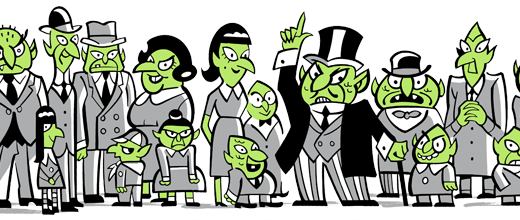The End of Roe and the Rise of Vigilantes
The American Supreme Court green lights deputizing busybodies to enforce sexual conformity
It was always my fear that the end of Roe v. Wade would return America not to the world that existed before 1973, the year when abortion was recognized as a constitutional right, but rather create the possibility for a newer and much more dystopian form of social control made possible by innovative forms of surveillance and medical inspection. This is already turning out to be the case with the Supreme Court’s momentous decision, made by a 5-4 vote, not to review Texas’s sweeping anti-abortion law, known as Senate Bill 8.
The Texas law was specifically designed to evade judicial review by moving the enforcement of anti-abortion measures away from the government and handing power to private litigants. As the New York Times reports, “Usually, a lawsuit seeking to block a law because it is unconstitutional would name state officials as defendants. However, the Texas law, which makes no exceptions for pregnancies resulting from incest or rape, bars state officials from enforcing it and instead deputizes private individuals to sue anyone who performs the procedure or ‘aids and abets’ it.”
Under the law, not only doctors and nurses who provide an abortion after six weeks can be penalized but even family and friends who drive a pregnant person to a clinic. In theory, an Uber driver who does the same could also be sued.
As Supreme Court justice Sonia Sotomayor noted in her dissent, "In effect, the Texas Legislature has deputized the State's citizens as bounty hunters, offering them cash prizes for civilly prosecuting their neighbors' medical procedures.”
Empowering private vigilantes to enforce the abortion ban that is the novel feature of the bill, an innovation that opens up a new sphere of intense oppression.
In a shrewd New York Times column, Michelle Goldberg noted the bill “is also an outgrowth of a Republican Party that increasingly encourages vigilantism.”
She invoked several examples:
Today’s G.O.P. made a hero out of Kyle Rittenhouse, the young man charged with killing two people during protests against police violence in Kenosha, Wis. Leading Republicans speak of the Jan. 6 insurgents, who tried to stop the certification of an election, as martyrs and political prisoners.
Last year, Senator Marco Rubio praised Texas Trump supporters who swarmed a Biden campaign bus, allegedly trying to run it off the road: “We love what they did,” he said. This weekend in Pennsylvania, Steve Lynch, the Republican nominee in a county executive race, said of school boards that impose mask mandates, “I’m going in with 20 strong men” to tell them “they can leave or they can be removed.”
Over the last several years, Republicans have taken a number of steps to legalize various forms of right-wing intimidation. Several states have granted immunity to drivers who hit people protesting in the street. In some states Republicans have given partisan conspiracy theorists access to election equipment to search for ways to substantiate accusations of voter fraud. They’ve also passed laws empowering partisan poll watchers, who have a history of intimidating both voters and election workers.
Goldberg could have added the rise of “stand your ground” laws (which codify the right to defense in ways that often end up encouraging something that is closer to murder) as well as various anti-Critical Race Theory laws (which seem designed to give aggrieved right-wingers leverage to push around teachers who discuss racism). For that matter, the January 6 riot and its subsequent celebration (with arrested rioters being recast as “political prisoners”) falls into this pattern.
These laws are designed to create a new class of mobilized citizens who are empowered to enforce their ideas of social hierarchy, sometimes with violence but in all cases with newfound assurance that they have the backing of the state.
In the case of abortion, this new vigilantism harkens back to the oldest traditions of the United States as a white settler colony: to the social conformity of the Puritans that so captured the imagination of Nathaniel Hawthorne. This tradition continued in the tyranny of the public opinion that Alexis de Tocqueville saw as the special danger of democracies and in the cloistered and stifling small towns depicted by writers ranging from Sherwood Anderson to Flannery O’Connor.
What the Texas law is trying to do is recreate, in the age of social media, is the whisper campaigns and tattle-telling of the old order. In sense, Texas will experience the worst of both worlds since residents inhabit a socially atomized society but will still feel the scrutiny, the disapproval, and the punishment of the busybodies. To recreate the straight-jacket of an earlier era but turbo-charged with new methods of spying and backed up by an innovative legal strategy: truly Texas lawmakers and their enablers in the court have created a devil’s brew.
Share and subscribe
If you liked this post, please share:
Or subscribe:




The American Protective League during the World War I era is another major precursor in official endorsement of vigilantism.
This kind of American Supreme Court green lighting of vigilantism isn't new. Ever since the SCOTUS sanctioned it in the now overturned Dred Scott decision, people escaping Southern slavery had to go to Canada lest they be captured on Yankee soil and returned to their slave owners.
A Texas woman seeking a legal abortion in New York can be extradited (or kidnaped?) back to Texas and her abetting friends and family prosecuted in similar fashion to Dred Scott under a similarly written law.